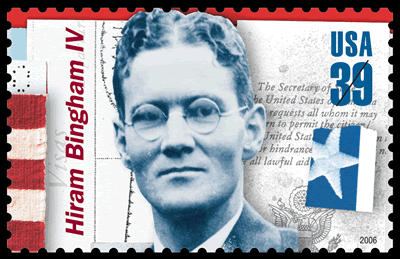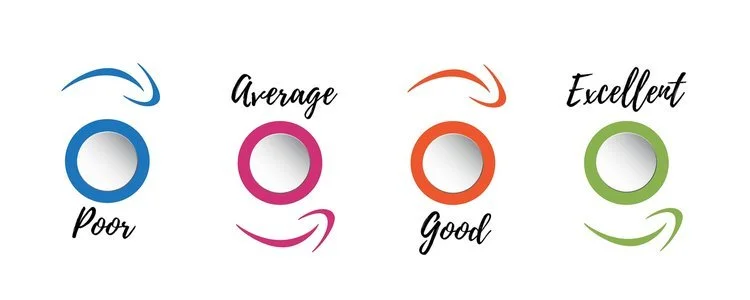The collapse of the Afghan government and security forces and the sacrifice of that nation’s fate to the Taliban are launching the traditional game of “who lost Afghanistan?” As with “who lost Vietnam?” and “who lost Iraq?” the search for blame – and political gain – substitutes a useless “who?” for the far more important “why?”
Afghanistan is the latest failed American “democracy-building” project. Our military, as always, fought bravely and sacrificed much, so we need to look elsewhere for reasons. It’s time to focus on the thinking mistakes that lead to disaster no matter how many troops and dollars are thrown at an international problem. Here are at least five of those thinking mistakes:
· Hubris overcomes humility: American optimism that it can ignore the evidence of history and the limits of its power breeds an overconfidence that invites disaster. The assumption that we could build a functioning democracy in a tribal society without the social capital and institutions needed to unify it against a determined rebel movement was never subjected to rigorous national debate. If it had, we might have fashioned more achievable goals.
· Failure to anticipate unintended consequences: What began as an effort to hunt and destroy Al Qaeda morphed quickly into democracy-building in Afghanistan and Iraq. Unintended consequences of two simultaneous massive military, economic and diplomatic ventures were either never foreseen or ignored. The toll on civilians has been incalculable and will worsen. America has lost lives, treasure, international credibility, has strengthened Iran and now faces a terrorist government in Afghanistan.
· Stunted moral thinking: When we occupy another country we acquire a moral commitment to its people and future. Our belief that Americans are good people, want to build nations that respect human rights and will commit hundreds of billions of dollars to do so does not substitute for serious thinking about the moral consequences of good intentions. The moral philosopher Immanuel Kant argued that the true test is whether we would want our actions to be universal principles applicable for all people at all times. The United States would never accept a foreign power occupying our nation in the name of spreading democracy, yet that’s what we did. Jeremy Bentham argued that the moral test is whether we achieve the greatest good for the greatest number. What lasting good - and for how many - have we produced? Most tragic now is the abandonment of our moral commitment to protect those Afghans who believed in our promises and sacrificed for them and us.
· Failure to define justifiable aims: George Washington wrote in his Farewell Address that American foreign policy should be guided by its duty and interest. That kind of thinking and debate was missing in our rush into Afghanistan. Instead of narrowly defining our interest as capturing Osama Bin Laden and destroying Al Qaeda, we accepted without much question the much wider interest of building democracy in the entire Middle East. What our duty required, as consistent with our national character and honor, received scant attention before the fact and was abandoned in our precipitous retreat.
· Failing to apply the lessons of history: Vietnam was America’s first major foreign policy and military failure. It has been followed by debacles in Iraq and Afghanistan. The mistakes in Vietnam were studied endlessly. Investigations, commissions and scholars also even drew lessons early in our latest wars. At the same time, we succeeded in post-war Europe, Japan, South Korea and in the First Gulf War, and we generally know why. What’s missing is the thinking about how to apply these lessons to decisions before we stumble into irretrievable errors.
In his post-Vietnam mia culpa, former Defense Secretary Robert McNamara acknowledged many errors. Two failures of thinking are painfully worth recalling now:
“Our misjudgments of friend and foe alike reflected our profound ignorance of the history, culture, and politics of the people in the area, and the personalities and habits of their leaders.”
“We failed . . . to recognize the limitations of modern, high-technology military equipment, forces, and doctrine in confronting unconventional highly motivated people's movements. We did not recognize that neither our people nor our leaders are omniscient. Where our own security is not directly at stake, our judgment of what is in another people's or country's best interest should be put to the test of open discussion in international forums. We do not have the God-given right to shape every nation in our own image or as we choose.”
In the momentous decisions about war, Americans too often seem driven by passion, keeping sober reason in the back seat. Then, when things go wrong, we improvise. We rightly pride ourselves on being a nation of tinkerers, but that does not preclude us from also being a nation of thinkers.
In her enlightening book, The March of Folly: From Troy to Vietnam, historian Barbara Tuchman chronicles how leaders persist in ill-considered policies against their own interests. “Folly is a child of power,” she notes, and “the power to command frequently causes failure to think.”
Photo Credit: Afghan children in Kabul - Soyhaib Gjyasi @unsplash.com






